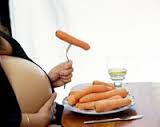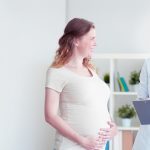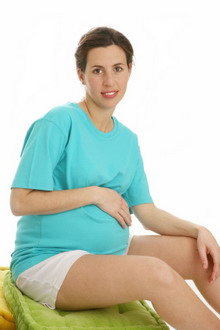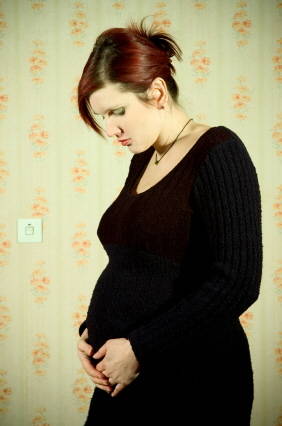Last menstrual period date:
Listeriosis in pregnancy could be harmful for you and for your baby. Find out in this blog how this could affect your pregnancy.

Listeriosis is a bacterial infection caused by the bacterium called Listeria Monocytogenes,which actually contains ten types of species. It rarely affects healthy people with strong immune systems, but can very easily affects pregnant women who have a fragile immune system. For them, the risk of listeriosis is about ten times higher.
We know that listeria can be found in water, soil, sometimes on plants, but most of the Listeria infection is from eating contaminated foods. Pregnant women who have this infection do not show any signs but at the same time listeria can be passed to their unborn baby through the placenta. Listeriosis can affect pregnancy and in some cases may lead to:
- Miscarriage
- Serious health disorders for the newborn
- Premature delivery
- Lethal outcome for the baby
Most pregnant women may pass the infection asymptomatic, but when we have to describe listeriosis symptoms which may occur, we can describe them as nonspecific clinical progress (flu-like symptoms). Pregnant women that are infected should be isolated. Now that you know that listeriosis can affect pregnancy and it can have a big impact on your newborn, your first step to fight back against this serious condition using something we all know about called prevention.
How can we prevent ourselves from the listeriosis?
Prevention is one step ahead the bacterial infection. Our advice for all pregnant women is:
- Avoid eating hot dogs and deli meats. If you do want to eat luncheon meats or deli meats, be sure they are reheated until they are steaming hot.
- Avoid the fluids from hot dog packages and other similar foods; wash your hands after you prepare hot dogs, deli meats and luncheon meats.
- Avoid soft cheeses such as brie, feta, and camembert and avoid Mexican-style cheeses like blanco, queso fresco and panela. It is advisable to consume fresh cheeses only if they have a label on them that clearly says “made from pasteurized milk”.
- Avoid refrigerated meat spreads.
- Do not consume seafood unless it is used as an ingredient and you can use it in a cooked dish like the casserole.
- You can eat the canned fish like: tuna, salmon and the shelf-stable seafood.
- Precooked food and ready to eat food is safe to eat.
- Keep an eye on your refrigerator thermometer and make sure it stays at 40 degrees F or lower.
Make a list for yourself of what to eat and what if forbidden. This is a great way to protect yourself and your baby from the this terrible condition. If you are not sure if you have eaten contaminated food, call your doctor immediately. Contaminated food can affect pregnancy whether is polluted with listeria or not. If you think that you have listeriosis, don’t worry, bacterial infections caught in their primary phase are easily treated.
Listeriosis treatment
Doctors recommend antibiotic therapy for this bacterial infection. The antibiotic therapy used to treat this will not affect pregnancy or harm your baby. The antibiotics are given to prevent the bacterial infection of the fetus. Antibiotics can be given to babies that are born with listeriosis.





